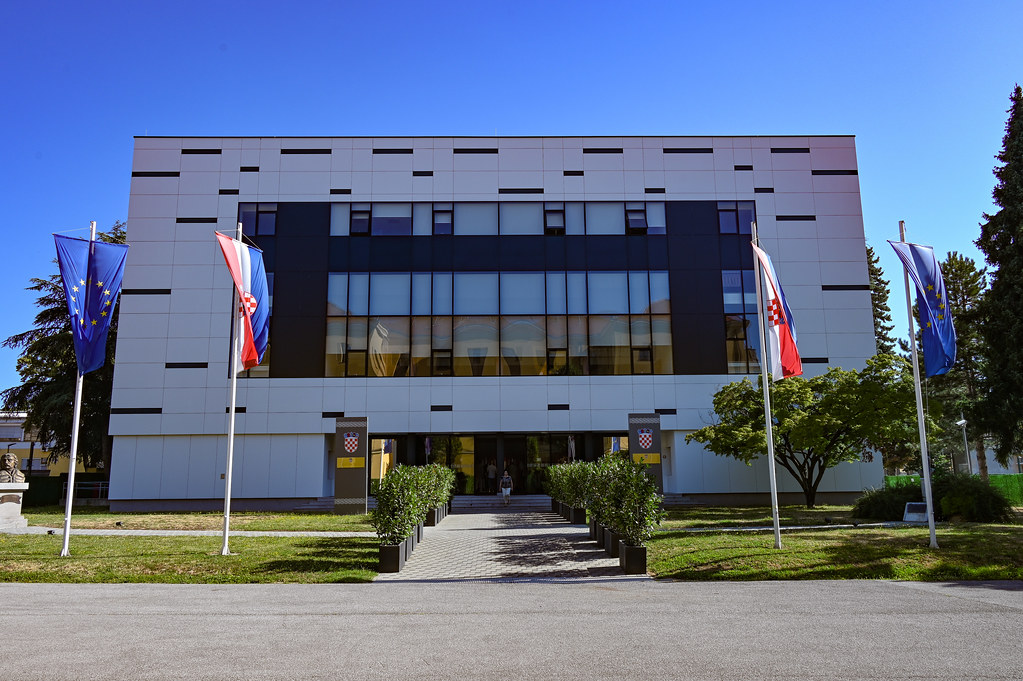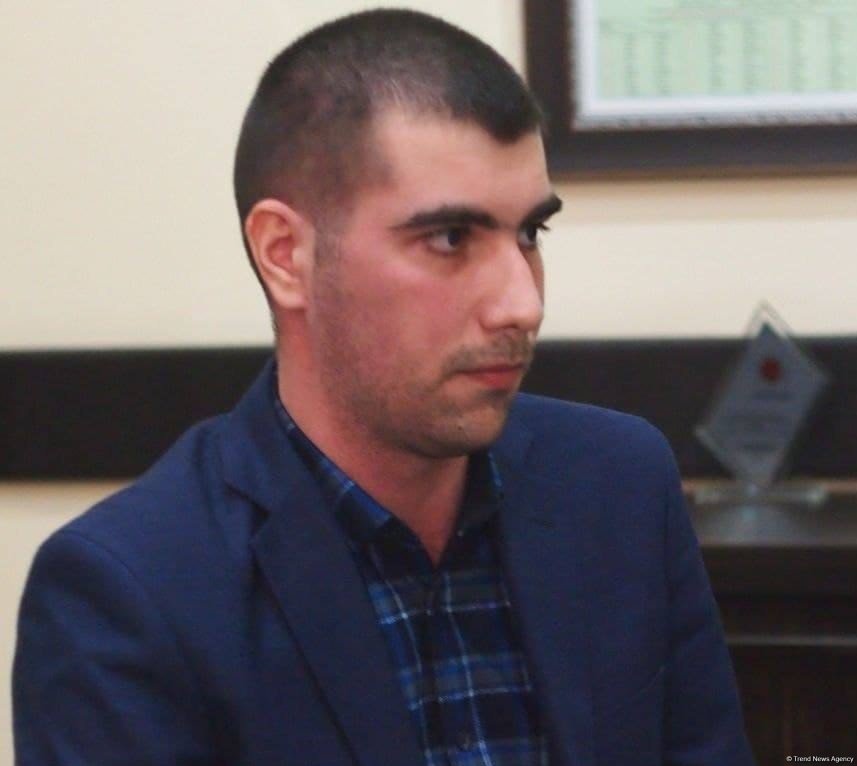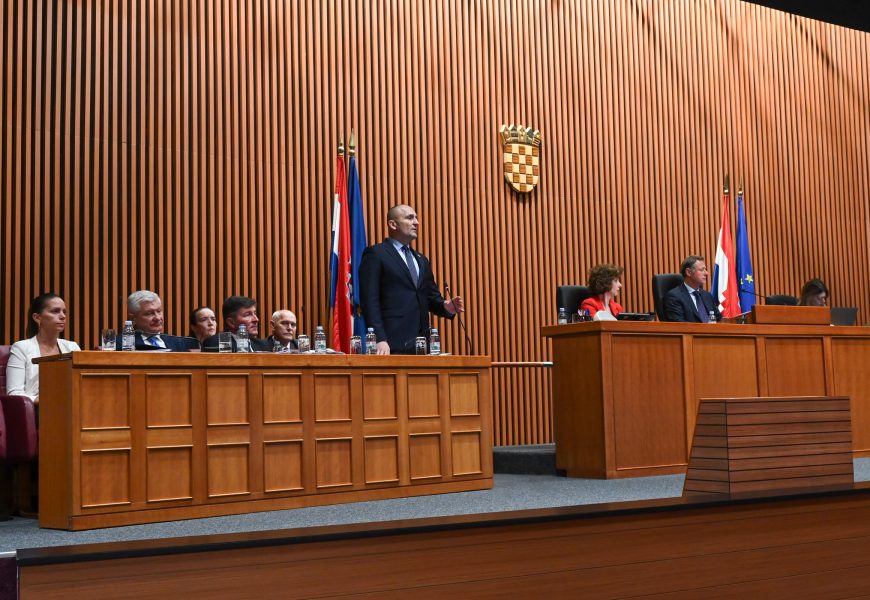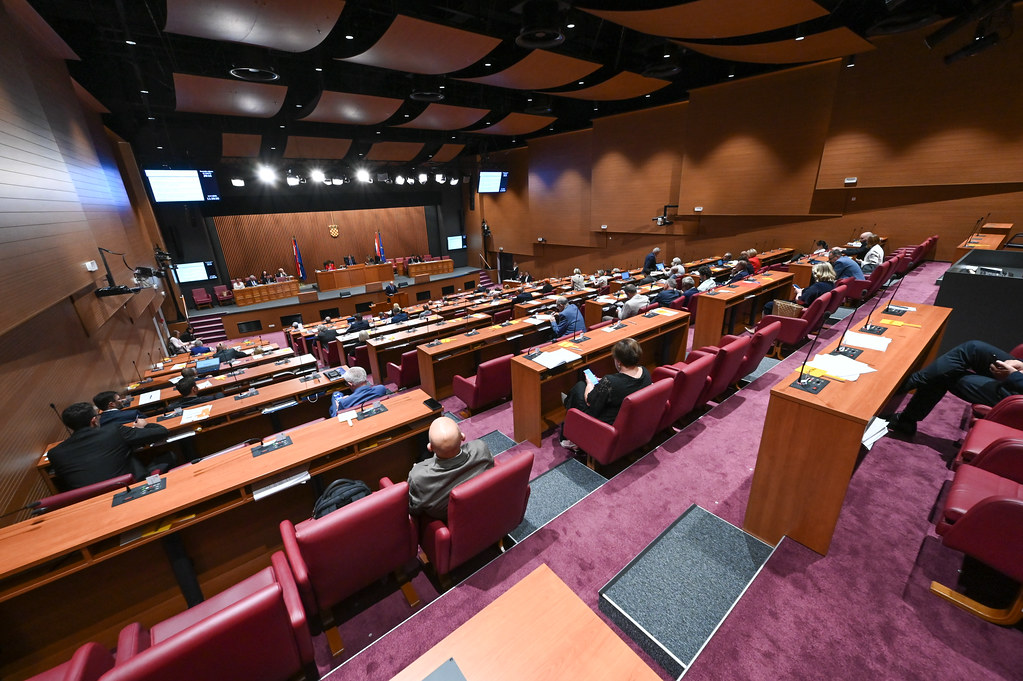BAKU, Azerbaijan, July 15. On July 14, 2025, the Deputy Prime Minister and Minister of Defense of the Republic of Croatia, Ivan Anušić, presented to the Croatian Parliament the Draft Defense Strategy of Croatia, the Draft Long-Term Development Plan of the Croatian Armed Forces 2025–2036, as well as the Draft Amendments to the Defense Act and the Act on Service in the Armed Forces, Trend reports.
The discussion focused on introducing basic military training lasting two months. For those who refuse this training on moral or religious grounds by invoking conscientious objection, the alternative is civilian service — three months under the Civil Protection Directorate of the Ministry of the Interior or four months performing municipal duties in local communities.
Minister Anušić participated in the parliamentary debate, answering opposition questions related to the proposal to reintroduce military training, the right to conscientious objection, the impact of training on youth education, and the need for long-term strengthening of the defense system.
“The conscientious objection must be convincing, but proving its credibility will not be a problem. Many have previously invoked conscientious objection but later obtained firearm permits and became hunters; this will no longer be possible. Decisions on requests will be made by the Ministry of the Interior’s Commission, and no one who claims conscientious objection will be denied it. No one will be deprived of anything,” the minister emphasized.
“We wanted to make military service motivating so that more people choose military over civilian service. Priority will be given only under equal conditions as other candidates in competitions, that is, if they have the same number of points, those who completed military training will have an advantage. There are many categories with priority, so why shouldn’t these people who put themselves at the state’s disposal also have it,” the minister said.
He emphasized that all candidates with special employment rights will be equally considered and that all open issues will be further discussed during the second reading of the law.
The minister also stated that education remains a priority and that students will have the possibility to defer service, and military training will not affect their schooling.
He stressed that renewed investment in defense is a response to new geopolitical challenges, highlighting strategic goals such as the development of unmanned aerial vehicles, cybersecurity, and strengthening the domestic defense industry.
“We are ready to take a leading role in the production of small combat drones within NATO and the EU,” said Minister Anušić, also pointing out plans to strengthen domestic capacities for servicing, maintaining, and replenishing ammunition. He also noted that defense spending will increase gradually without putting greater pressure on the budget.
Stay up-to-date with more news on Trend News Agency's WhatsApp channel











